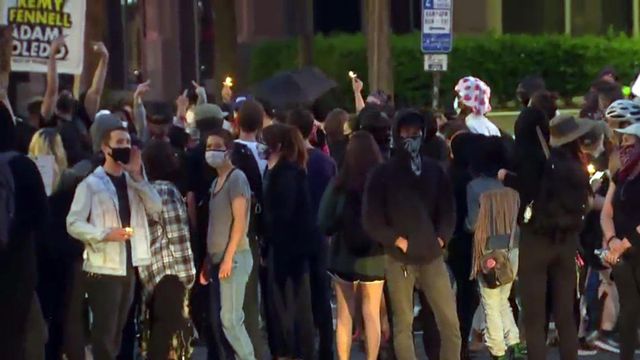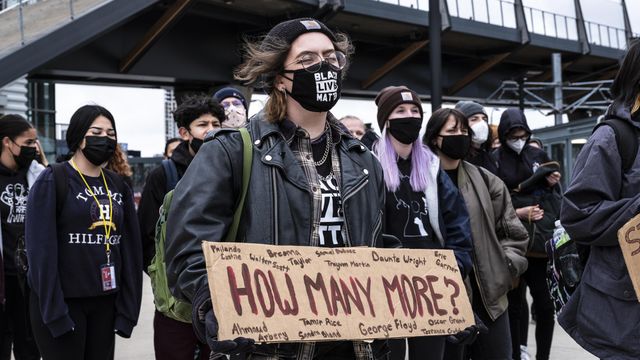'Let's do that peacefully,' Wake DA says of any protests following Chauvin verdict
Protests over police killings occurred nightly in downtown Raleigh over the weekend, and authorities are concerned they will become more violent once a jury in Minnesota returns a verdict in the trial of former police officer Derek Chauvin, who faces charges in the death of George Floyd last year.
Posted — UpdatedPolice eventually ordered the crowd to get out of the streets and move onto sidewalks. The orders sparked violence from the crowd, who spray-painted graffiti and threw on buildings, shattered windows and tossed trash bins into streets to hinder police. Authorities then deemed the protest an "unlawful assembly" and broke it up, arresting those who refused to go away.
All 12 people who were detained by police were cited with failure to disperse: Jonathan Spencer Copes, 22, Kimberly Phistry, 33, Patrick Thomas Mateer, 28, Ian Michael Holbogen, 19, Alexander Jarod Stop, 20, Laila Danae Houston, 21, Uriah Madar, 20, Nathaniel Yao, 23, Miguell Delangelo Staten, 49, Marion Ellis Driver, 31, Loren T. Whitaker, 29, and Richard Randall Snyder, 24
Phistry also was charged with assault on a law enforcement officer, and Copes also was charged with simple assault. All of the charges are misdemeanors.
Despite the vandalism and property damage that occurred, no one faces charges related to that. Wake County District Attorney Lorrin Freeman said such charges might still be filed after police review security camera video in an effort to identify those responsible. A similar process followed violent protests that occurred downtown last summer in the wake of Floyd's death, she said.
Freeman and Wake County Sheriff Gerald Baker both said they anticipate more protests over the Chauvin trial, but authorities won't tolerate violence or rioting.
"Depending on how that goes, there may be a large number of people who feel compelled and very compassionate about coming downtown and expressing their views. Let's do that peacefully," Freeman said.
Baker said it "wouldn't be a bad idea" for downtown businesses to board up their windows ahead of time.
"As much as we are here trying to keep those things from happening, it is a tremendous job following a crowd of 60 to 100 people," he said.
The sheriff's office now blocks off street access to its downtown facilities during protests, and Baker said deputies will take other preventive steps as needed to protect property and the public.
"Law enforcement has an obligation to step in and shut that down, and they are going to do that," Freeman said.
"Our country should be concerned about, you know, what the verdict is going to be. What's it going to say socially for our country?" said Dean Crisp, a former North Carolina police chief with 40 years of experience in law enforcement. "We don't want anyone to get injured. We don't want protesters to get injured, we don't want police officers to be injured, but we do want people to have a voice."
The "new day" for law enforcement requires different responses than use of force, Crisp said.
"It's not an easy time to be a police officer. Things are changing literally right before your eyes," he said.
• Credits
Copyright 2024 by Capitol Broadcasting Company. All rights reserved. This material may not be published, broadcast, rewritten or redistributed.





